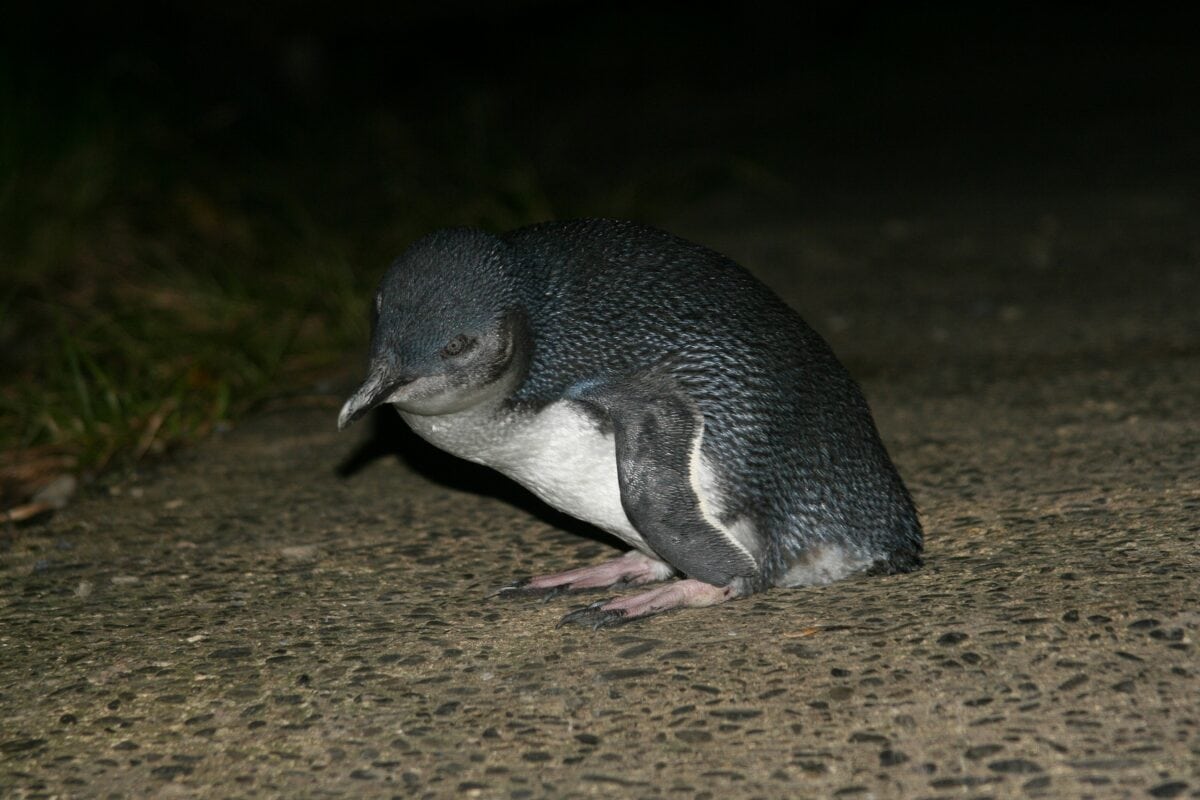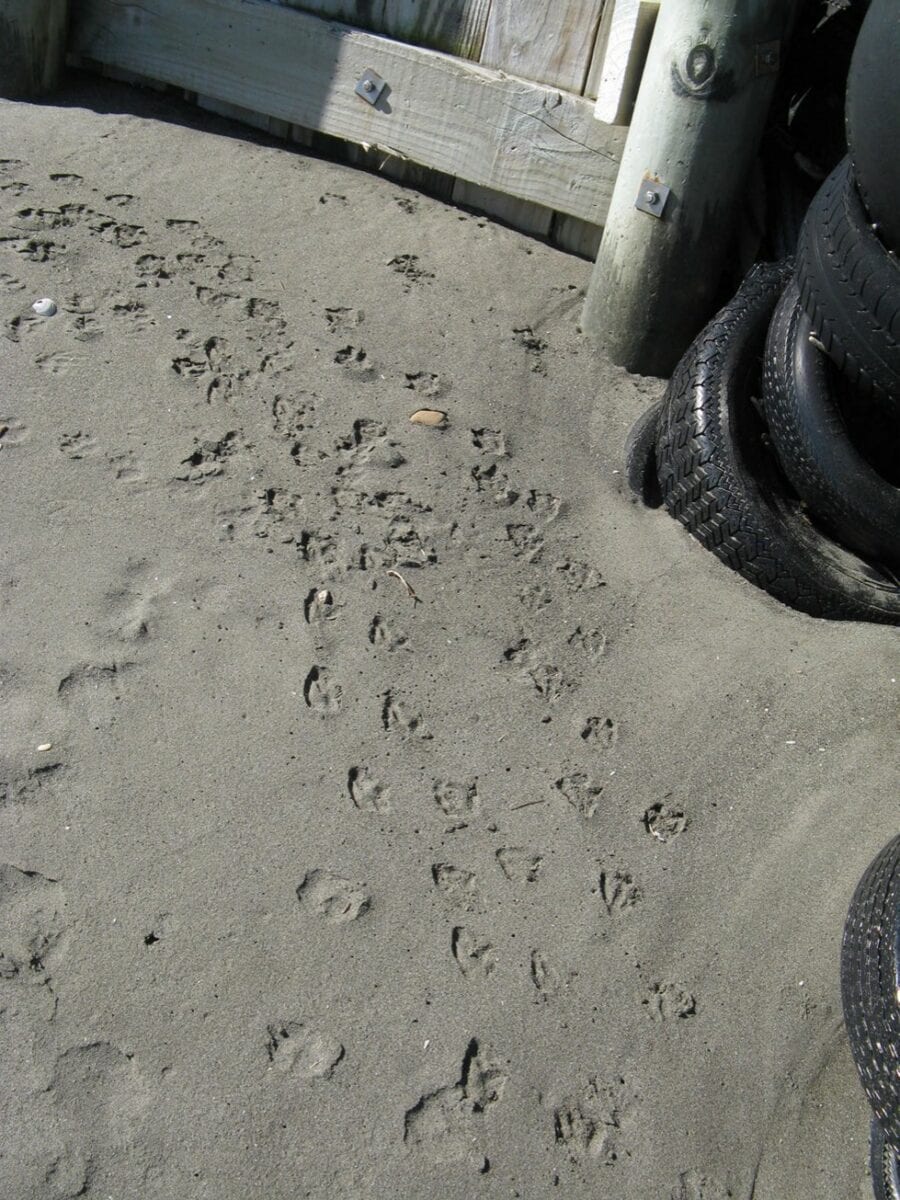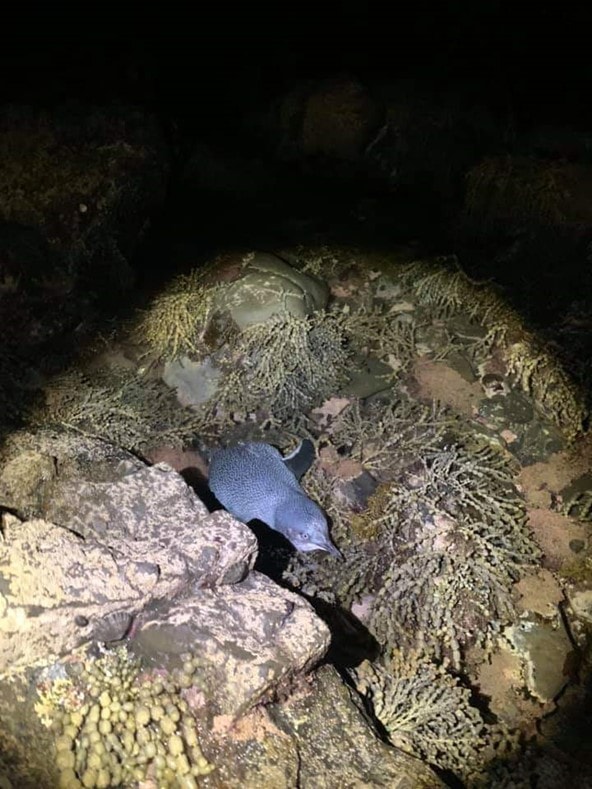Bride Coe lives with kororā (little blue penguins) under her floorboards, as do a number of people on Ames Street. She tells us about these delightful birds and asks us to look out for Paekākāriki’s resident taonga.

Paekākāriki has many assets, but the beach, arguably, is the best. Not everyone knows that we share our beach with kororā, little blue penguins, sometimes known as fairy penguins. It would probably be more correct to say they share their beach with us, as they were here, one assumes, long before Paekākāriki was settled. This colony is unique, probably a remnant of the mainland coastal breeding colonies which are thought to have existed all around New Zealand. It is also the only colony between south of Pukerua Bay and north of Ōtaki.
There are homes at the south end of Paekākāriki where kororā have been reported nesting in the same site, on the same property, for 70 years or more. They nest under houses and sheds, and in banks, and beneath dense plant growth.
These little birds, just 30cm tall, are quite private creatures, seldom seen. Generally, they leave their nest site before dawn to fish, and return after dark. If one walks along the beach at the south end of Paekākāriki one will often see their footprints going in a straight line to, or from, the sea, and in the sand along the bottom of the seawalls, as they find the way up to their nests.

During moulting the kororā will be ashore 24/7 until new feathers have grown and become water resistant. When incubating eggs and raising young, one adult will stay on the nest while the other goes fishing, then they swap places at night. When the young have hatched, food is regurgitated by the returning adult to feed the young. This is when they are particularly noisy and smelly as many Ames Street residents will affirm! It is not uncommon to have to say to visitors ‘sorry about the smell, it is not us, but the underfloor residents!’
Although kororā come ashore to their nests all year round, they are particularly vulnerable when they have young. This is generally between August and March when a pair will raise one or two chicks. The biggest risks to these flightless birds are rats, stoats and especially dogs. So please Paekākārikians keep your dogs on a lead when on the beach to help protect these charming little birds. They are another of Paekākāriki’s special treasures.

The conservation status of kororā is “At risk – Declining”.
Useful contacts:
Kāpiti Coast Biodiversity Projects Inc
Website: kapitibiodiversity.org.nz
If you find a sick, injured, or dead kororā, please phone DoC 0800 362 468
Paekākāriki.nz is a community-built, funded and run website. All funds go to weekly running costs, with huge amounts of professional work donated behind the scenes. If you can help financially, at a time when many supporting local businesses are hurting, we have launched a donation gateway.



